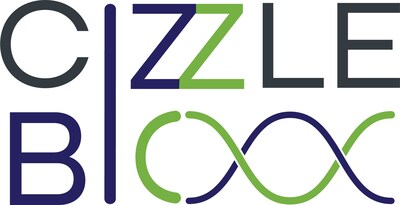SAN ANTONIO, Aug. 5, 2025 /PRNewswire/ — A groundbreaking multicenter clinical study published on July 30 in JAMA Surgery confirms the powerful diagnostic performance of the Destinex assay, a novel liquid biopsy that serves as the foundation for Cizzle Bio’s DEX-G2 blood-based assay for early detection of gastric cancer—one of the world’s deadliest malignancies. The study’s findings validate the clinical utility of DEX-G2 as a minimally invasive, clinically actionable tool to detect gastric cancer at its earliest and most treatable stages, when timely intervention can significantly improve outcomes and save lives.
The DESTINEX study, conducted at leading cancer centers in Japan and South Korea, evaluated a signature panel of microRNAs derived from exosomes and cell-free serum. The study analyzed 809 serum specimens from 480 participants, including patients with gastric cancer and matched controls. Using machine learning to refine and validate the assay, researchers demonstrated exceptional diagnostic accuracy for early-stage gastric cancer.
The study was led by Ajay Goel, Ph.D., AGAF, an internationally recognized leader in cancer biomarker research and the developer of the Destinex assay. Goel also serves as scientific advisor to Cizzle Bio and is chair of the Department of Diagnostics and Experimental Therapeutics at City of Hope Comprehensive Cancer Center, where he led the development of the Destinex assay into the DEX-G2 blood test that Cizzle Bio is now advancing for near-term commercial launch.
“The publication of this study in JAMA Surgery is a critical milestone, not only for our scientific team but also for the future of early gastric cancer detection,” said Goel. “By combining the sensitivity of cell-free microRNAs with the specificity of exosomal markers, Destinex—and now DEX-G2—offers a minimally invasive, accessible, and highly accurate method for detecting gastric cancer at a stage when outcomes can be dramatically improved.”
In the study, the Destinex assay achieved an area under the curve (AUC) of 96.8% in the validation cohort, with a sensitivity of 95.0% for detecting early-stage (pT1) gastric cancer. These findings underscore the assay’s strength as a minimally invasive tool for identifying gastric cancer early when it is most curable. The assay achieved high sensitivity and specificity in distinguishing individuals with gastric cancer from those without the disease, confirming its potential not only as a minimally invasive screening tool but also to significantly improve patient outcomes through earlier detection and intervention.
A Pressing Clinical Need
Gastric cancer is the third leading cause of cancer-related deaths worldwide, mainly due to delayed diagnosis. Globally, more than 60% of gastric cancer cases are diagnosed at advanced stages, when curative treatment is no longer an option and prognosis is poor. Endoscopic screening has helped reduce mortality in high-incidence countries such as Japan and Korea, but its cost, invasiveness, and limited availability make it impractical for widespread use in low-incidence regions.
Minimally invasive blood-based tests like DEX-G2 have the potential to fill this gap. The Destinex assay, the scientific basis of DEX-G2, demonstrated outstanding sensitivity and specificity for detecting early-stage (T1) gastric cancer, and its diagnostic performance remained robust across tumor stages and patient subgroups. The study also showed a significant drop in biomarker levels after surgical tumor removal, confirming the assay’s tumor specificity. Read the full JAMA Surgery study here: https://jamanetwork.com/journals/jamasurgery/fullarticle/2837074
“This study reinforces the scientific credibility and clinical utility of the technology behind DEX-G2,” said Bill Behnke, CEO of Cizzle Bio. “We are proud to advance this innovation into clinical practice, where it has the potential to make earlier detection a reality for patients who currently have few options for early detection.”
From Discovery to Clinical Application
Cizzle Bio is advancing its DEX-G2 test, based on the Destinex assay, for near-term commercial deployment in CLIA-certified laboratories. It is intended to support clinicians in detecting gastric cancer earlier, particularly in primary care and gastroenterology settings where endoscopy may not be accessible or practical.
The company holds a worldwide exclusive license for DEX-G2 and is actively pursuing commercialization in both U.S. and global markets, with a focus on reaching populations where gastric cancer is often diagnosed too late for curative treatment.
About Cizzle Bio
Cizzle Bio is a Texas-based biotechnology company dedicated to revolutionizing cancer diagnostics by advancing biomarker-based blood tests, starting with early detection of lung and gastric cancers. Our goal is to empower patients, equip clinicians, and improve outcomes through innovation, compassion, and life-saving solutions. We hold exclusive licensing rights for our groundbreaking CIZ1B biomarker test in the United States, Canada, and the Caribbean and a worldwide exclusive license for our DEX-G2 biomarker gastric cancer test. Cizzle Bio is commercializing both tests for U.S. clinical environments.
www.cizzlebio.com
Media Contact:
Yolanda Heiberger
yolanda@cizzlebio.com
![]() View original content to download multimedia:https://www.prnewswire.com/news-releases/jama-surgery-study-confirms-diagnostic-value-of-cizzle-bios-dex-g2-blood-test-for-early-detection-of-gastric-cancer-302522272.html
View original content to download multimedia:https://www.prnewswire.com/news-releases/jama-surgery-study-confirms-diagnostic-value-of-cizzle-bios-dex-g2-blood-test-for-early-detection-of-gastric-cancer-302522272.html
SOURCE Cizzle Bio



